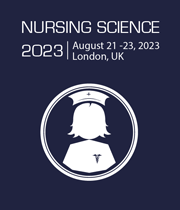Title : Recruitment and retention into mental health nursing workforce; Student work integrated learning experience influencing graduate preparedness
Abstract:
Work Integrated Learning (WIL) is an educational strategy that provides students with experiences in real health workplaces facilitating student competencies and capabilities development. It is supervised, purposeful, situated, and contextual within nursing industry partnerships having behavioural, constructivist, cognitive and humanistic theoretical underpinnings. This better prepares students to graduate transitioning to nursing employment through the extensive development of workplace readiness progressing in maturity and autonomy through acknowledgement of past learnings, reflection, and the influence this may have on future learnings.
Activity: Exploration of undergraduate nursing students’ perceptions of their work integrated learning (WIL) experiences was undertaken for students enrolled in a Bachelor of nursing at regional university. Factors that shape student learning during WIL were examined. Data was collected via an online survey.
Significance: It is essential to identify factors that influence student satisfaction with WIL to inform curriculum development and industry engagement. Nursing professional practice demands developing a wide range of competencies in undergraduate nursing students to ensure graduates are safe and effective practitioners. This calls for the design of practical and authentic learning experiences in undergraduate programs. The reduction of dedicated Mental Health Clinical Placements is reducing the specific learnings for this specialty area.
Impact: Nursing student placement experiences, engagement, and learning influence the development of the student nurse into a workplace ready graduate. Clinical learning requires a unique combination of workplace and university capabilities. By examining student experiences in this contested space, we aimed to ensure the quality and competence of the future nursing workforce. Effective teaching strategies must be considered when introducing adult learners to the requisite varied learning experiences in nursing education. Learning is not isolated within the individual’s mental processing; it is affected by the cultural, political, physical, and social dynamic components of the person’s existence thus providing a basis for socio-constructivist learning. As the student progresses with the level of education and, the influences of WIL experiences in various organisations over the years of the degree, the student will move from the novice to competency in their transition to graduate practice.


